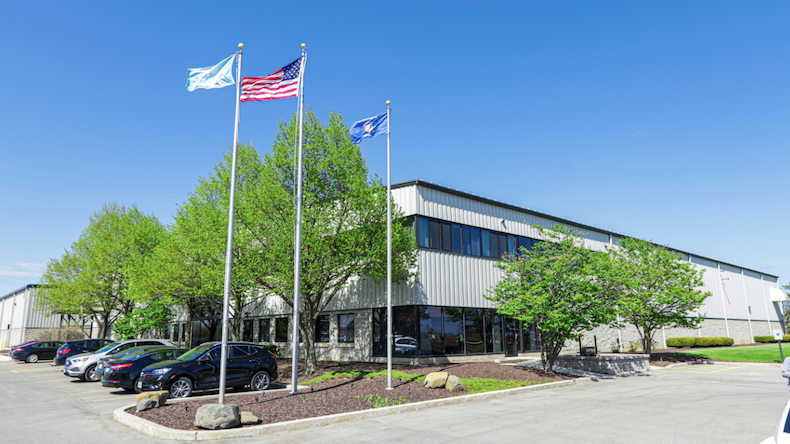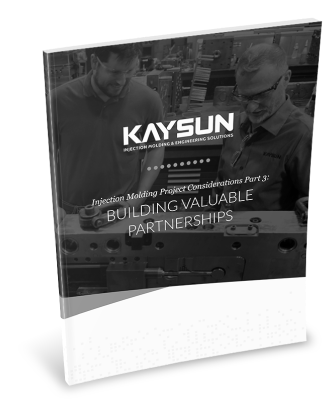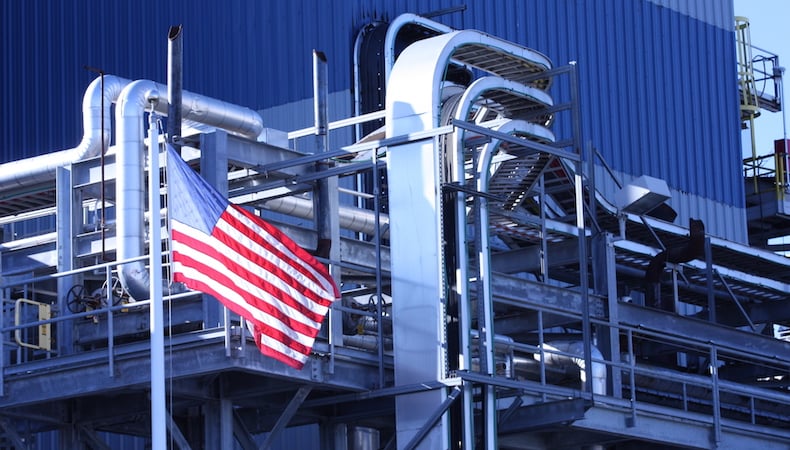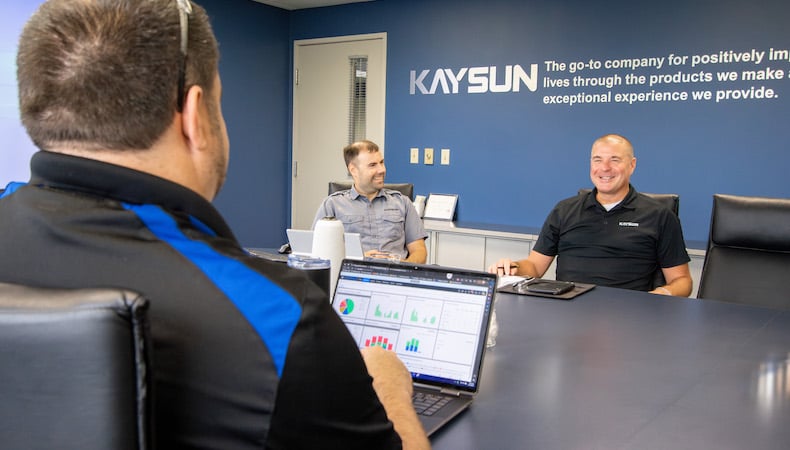5 Traits a Molder Needs to Support Reshoring & Plastic Sustainability

For decades, U.S. manufacturers leveraged the benefits of globalization. The lower costs, lower wages, and competitive final product price points of the global supply chain were powerful incentives for using overseas suppliers.1
But 2020 changed everything.
Pandemic-related import shortages, fuel and freight cost spikes, and extended delivery-time delays made the once-attractive total cost of offshoring much less appealing to OEMs. The low bottom-line price of an overseas supplier no longer outweighed the benefits of partnering with U.S.-based suppliers. Manufacturers migrated production — and a projected 350,000 jobs in 2022 alone — back to the United States.2
The Connection Between Reshoring and Sustainable Injection Molding
Predictably, reshoring has resulted in U.S. job creation. Equally as important is how reshoring addresses trends that decision makers deem influential, such as supply chain risk mitigation and closer proximity to markets and customers.
Green considerations are also factors of growing impact on reshoring, showing a 32% increase in priority between 2021 and 2022.1 With plastic sustainability being a top environmental focus, it stands to reason that injection molding is closely scrutinized as OEMs balance the need for the process with the needs of the planet.
5 Indicators That An Injection Molder is Committed to Plastic Sustainability
To that end, manufacturers are expanding their evaluation of injection molder partnerships to include eco-responsibilities that span certain expertise and capabilities, such as:
1. Regrind and Recyclable Resins
Thermoplastic scrap parts, runners, and sprues are destined for landfills unless converted to plastic regrind granules for use in certain applications, including clean energy fuel pellets. Molders that produce, handle, and appropriately reuse regrind demonstrate environmental responsibility.
The same holds true for molders that stay informed about advancements in recyclable resins such as the “infinitely recyclable plastic” polydiketoenamine (PDK) and other non-petroleum-based plastics. Understanding what’s on the horizon in sustainable injection molding is as eco-conscious as efficiently recycling traditional materials.
2. In-House Automation Teams
The speed and precision of automation is fundamental to custom injection molding. Leveraging those advantages by way of an in-house automation team makes a molder your partner in sustainable injection molding. As trained problem solvers aligned with projects from concept through completion, the automation team introduces the best technological solutions for the challenge — and for sustainable outcomes. Process improvements attained through automation are directly correlated to less plastic scrap and waste.
3. Enhanced Quality Control
Quality control is integral to successful, repeatable injection molding outcomes — but have you stopped to consider how it also impacts the environment? Simply put, when a molder prioritizes injection-molded part quality there is far lower potential for generating unnecessary waste in the form of defective plastic parts and rework. Further, when a molder pairs quality control and continuous improvement within cross-functional teams, customers can readily overcome expensive, material-intensive challenges like excessive quality reject rates. Fewer rejects means fewer plastic sustainability concerns.
4. Waste-to-Clean-Energy Initiatives
Scrap plastic recycling is an effective method of landfill waste diversion and reuse — and may be the leading indicator of sustainable injection molding practices.
Working with renewable fuel and power producer Convergen Energy, Kaysun actively participates in converting plastic waste to clean energy for the benefit of our community, country, and world. Kaysun regrind is part of the nearly 40% of recycled plastic in the Convergen Energy fuel pellets utility companies use to generate electricity instead of burning coal.
Manitowoc Public Utilities has seen a 79% reduction in greenhouse gasses with the switch — a result that encouraged Kaysun to set a 2023 goal of diverting 270,000 pounds of plastic from the landfill to Covergen Energy. Reaching the goal means the generation of approximately 720 mega-watt hours of electricity, which is enough to power 90 residential homes for a year, or the entire expanded Kaysun facility for 33 days.
5. Environmental Stewardship
A molder with a culture that champions corporate social responsibility (CSR) understands the merits of taking the actions necessary to protect the planet. “Going green” isn’t idle talk at Kaysun; we believe in leading by example, embracing sustainable production practices and CSR initiatives that signal ecological focus and the high probability of being an ideal injection molding partner.
As manufacturers are better understanding the benefits of reshoring, they are also stepping away from purchase-price decisions. Investing in the value of sustainable injection molding, and the molders that can supply it, is the go-forward strategy for successful, ecologically sound outcomes. Dig deeper by downloading our white paper, Exploring Reshoring: Insights for Manufacturers. Click the button below to access your copy now.
SOURCES:
1Reshoring Initiative, IH 2022 Data Report, Multiple Supply Chain Risks Accelerate Reshoring, August 15, 2022
2The Wall Street Journal, U.S. Firms Bring Home Overseas Jobs, August 20, 2022
Subscribe
TO OUR BLOG

How Do Injection Molder Partnerships Influence Project Costs?
You Might Also Like...

4 Ways Reshoring Remains A Win for American Manufacturing
International trade tensions have brought heightened awareness to reshoring. Recen…
READ MORE

Top 3 Custom Injection Molding Trends to Watch in 2025
Despite being considered more energy efficient and producing less waste than other…
READ MORE

Molder Effectiveness: Market Specialization or Supplier Diversification?
For companies that require tight-tolerance, sophisticated plastic injection moldin…
READ MORE
